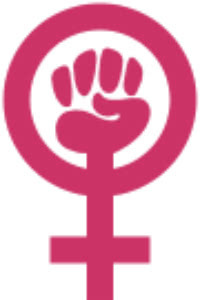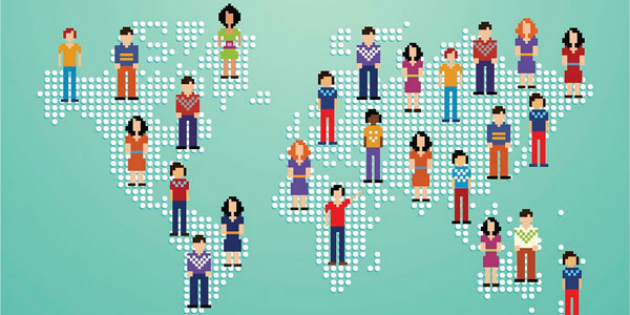THE modernity it is a period of time that is characterized by the current social, cultural and economic reality in the world. When dealing with the modern, pre-modern or even post-modern era, we make reference to the political order, the organization of nations, the economic form they adopted and countless other characteristics. However, in this trajectory that we will trace here, what matters to us is the trajectory of human thought and its construction process. To do so, we will start from the reflections of Zygmunt Bauman and Max Weber to draw a line that guides us through the changes in human thought and its connection with the historical reality of the people who were part of this process.
What is modernity?
We often hear or refer to our reality as modern. The term is already so naturalized in our language that it started to have the same contemporary context — which coexists in the same period of time. But do you understand what or what we mean when we talk about modernity?
To answer this question, we have to go back in our history and understand first how it is possible to determine the passage from one period of time to another. It is commonly understood that events that began with
French Revolution were the culmination of the overcoming of traditional thinking and social organizations that marked themedieval period. The break with scholastic thinking, a method of critical thinking still linked to the precepts of the Catholic Church, and the establishment of reason as autonomous form of knowledge construction, disconnected from theological precepts, were some of the first steps towards the construction of thought modern.The unfolding of the French Revolution was based on the ideological construction that we conventionally call Enlightenment. Enlightenment thought and empiricist thinkers, who believed that true knowledge was in the experience from the senses, established reason and science as the true way of knowing the world. This rationalist thinking inherent in the Enlightenment overturned the entire social structure of France, which was built on pillars fundamentally theological traditions, which shook all the social and political pillars of the country in which the monarchic rule absolutist supported himself. The French monarchy and its power ensured by divine provision were overthrown in the face of the strengthening of egalitarian ideals and rationalism. At that time, the assumption of equality was strengthened (in which no man would be above another, nor even the King), who, later on, would be the starting point for the first democratic movements in the Americas.
Rene Descartes he was one of the most prominent figures of that period. His works are seen as a source of inspiration and a basis for building modern philosophy. In his main work, Method speech, Descartes presents what was called the Cartesian method, the apex of his philosophy, which stipulated the path to be taken for the construction of scientific knowledge: evidence, analysis, synthesis and enumeration.
Rational thinking and the Cartesian method paved the way for the events that were seen as the starting point of the modern era: the industrial Revolution. European society was going through a series of changes motivated by great military and ideological conflicts. The Napoleonic wars stimulated the arms race, which raised the demand for the production of material goods on a larger scale. The processes of enclosure, in which land for communal use was privatized, pushed the peasants to the large urban centers. The direct link to land and rural labor, through which the peasant produced his livelihood, was severed. The agrarian populations accumulated in the cities and began to have to sell their labor power in the large factories that were being built.
At this point, we see that the entire social structure that had existed until then had changed. The relationships between individuals became different as their reality became different. Customs that were previously justified in an agrarian and rural world were forgotten or changed in the urban environment. New conflicts arose in the face of a new configuration of labor relations and influenced by the emerging capitalism, which was the main point of the new organization of the world.
Do not stop now... There's more after the advertising ;)
Modernity was built amidst the ideological conflicts of instrumental objective reason, used as a tool to address issues of human thought and its reality. Thus, traditional thinking, linked to theological and religious thinking, was progressively abandoned. Max Weber referred to this phenomenon as the process of “disenchantment of the world”, in which the modern subject began to divest themselves of customs and beliefs based on learned traditions that rested on the fixed pillars of religions. Explanations and questions based on the use of instrumental reason broke preconceived notions and anchored in the religious nucleus.
The initial disorder that the modern world found with the abandonment of religious principles that supported customs and social organizations was the driving force for what sociologist Zygmunt Bauman argued was one of the main characteristics of modernity: the search for order. This search had already been announced by Thomas Hobbes, back in the 17th century, with the description of the power that a sovereign state should having as controller of his subjects and responsible for enforcing order, specifying what was acceptable or what was repulsive.
Still. it was only in the 19th and 20th centuries that this phenomenon took on the dimensions we see today. The modern era, in the face of increasingly global conflicts, was marked by the segregation of classes, individuals and, above all, of nations. Bauman explains that:
Sorting consists of the acts of including and excluding. Each naming act divides the world into two: entities that respond to the name and everything else that does not. Certain entities can be included in a class—become a class—only to the extent that other entities are excluded, left out. (BAUMAN - 1999)*
You modern states, as we know them, were formed from this logic of exclusion and inclusion. The search for order, determining what is common to us and what is not, took shape in the status segregation of territories of the countries we have today spread around the world and spread to all strongholds of societies modern. Conflicts between socially accepted ideas and everything that is different has been the hallmark of modern societies.
The naming act that Bauman refers to is the principle of determining an order. By excluding what is not part of an organization, we simultaneously establish what is part of it. As a clearer example, we have the borders of countries that precisely delimit the extent of a territory and still serve as an invisible barrier to "foreigners" or those who are not of that order. In particular, this separation strengthened colossally during the 20th century and the global scale wars that followed, such as the First and Second World Wars.
The establishment of order was followed by the search for progress, another hallmark of the modern era. In this sense, wars were responsible for the dizzying technological advance of the last century. The arms race of the countries involved led to the development of new technologies that again changed our perception of the world.
Given this enormous trajectory that we strive to cover, we can contemplate the size of the complexity of the paths through which human thought and our social organizations have passed and still pass. Understanding historical processes allows us to understand the origin of the reality in which we live. The modern world is still reinventing itself and, like all the periods that came before, the final moment of its conclusion will come. It remains for us to ask: are we already in this moment of rupture?
*Reference: BAUMAN, Zygmunt; Modernity and ambivalence / translation Marcus Penchel. — Rio de Janeiro: Jorge Zahar Ed., 1999
by Lucas Oliveira
Graduated in Sociology



